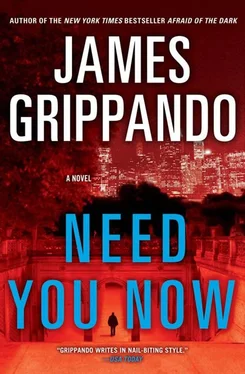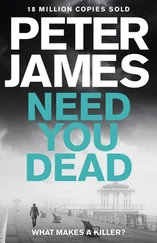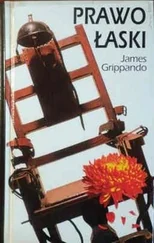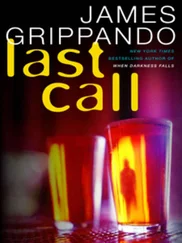“No seagulls.”
She gave me a weak smile. Enough with the jokes about the breakup.
“We completely lost touch until I was in Singapore. He called me. This time, it was purely business.”
“What kind of business?”
A waitress came by, but there was no pressure to order. Puffy’s Tavern is one of the few remaining places on lower Hudson Street where you can sit as long as you like and not feel obligated to buy a fifteen-dollar bottle of sparkling water to justify your stay. Amid a spate of trendy restaurants and pricy bars, Puffy’s is a blue-collar throwback to old Tribeca, a shot-and-a-beer haven for artists and truck drivers alike, still with its original tile floor and an old-fashioned bar that dates back to Prohibition. Lilly ordered a diet soda. I could have used a couple of aspirin, but I went for a shot of tequila. To each his own, I say, when it comes to pain management.
Lilly continued when the waitress stepped away.
“Gerry had a client roster that read like a social register of south Florida-professional athletes, Grammy-winning singers, all high-net-worth individuals. You have to remember that Cushman was very clever. One reason his operation didn’t look like a Ponzi scheme was that he didn’t accept every client who threw money at him. Gerry was able to draw in heavy hitters with guaranteed access to the Cushman fund, but not all of them wanted to be a hundred percent in Cushman. Gerry was too busy networking to manage the non-Cushman part of the investment portfolios, so he needed someone else to do it. I was someone he trusted not to steal his clients away. The fact that I was on the other side of the world and would never meet his clients was actually a plus. I handled the non-Cushman part of the portfolios from BOS in Singapore.”
“So Collins matched you up with clients you never met?”
“There was always an introductory conference call.”
Like most banks, BOS abided by the KYC rule: “know your client.” But in this business, KYC didn’t require anything nearly so onerous as actually knowing your client. Perfunctory conference-call introductions-“intro-functories,” we called them-made Lilly no different from any of the other private wealth managers in the Singapore branch.
“But if you were helping these clients invest outside Cushman, how does that connect you to the Ponzi scheme?”
“That came later. Gerry had other clients. Super-high net worth. Some with numbered accounts in Zurich, some with funds in other systems. I don’t know all the details, but over time, the relationship with Gerry was working very well for me and BOS. That was when he asked me to arrange for one of his super clients to meet with the head of our numbered account services in Singapore.”
“Surprise, surprise. The link to Cushman is bank secrecy.”
“The flag wasn’t nearly so red at the time.”
A burst of cold air brushed my face, and I looked past Lilly to see who had entered the tavern. Puffy’s wasn’t exactly a Wall Street hangout, but you could never be too careful when discussing bank secrecy. The guy making a beeline to the bar seemed harmless enough. He actually looked ridiculous, a little fortysomething white man wearing one of those flat-billed rapper caps.
“Who was the client Gerry wanted you to assist?” I asked.
She shrugged. “I arranged for the meeting, but the identity of the account holder was known only to Gerry and the manager of numbered accounts.”
“You had no other involvement?”
“I didn’t say that.”
Our drinks arrived, and the waitress left us alone. Lilly sipped her soda. I belted back my tequila, but I should have known better than to order without specifying a brand. The man at the bar pretended not to notice, but he was clearly amused by my reaction to Puffy’s firewater. Lilly waited for my face to unwind, then continued.
“After the account was created, Gerry wanted me involved. We had to jump through some administrative hoops in the bank, but we finally got it approved so that I could deal directly with his client.”
“A client with no name.”
“Or face,” she said. “Only the top brass knew who he was. To me, he was just a voice on the phone with a personal identification code. I was getting a glimpse into the private banking business that had put BOS on the financial map. I was excited, actually, but after a while it was fairly routine. Gerry’s client would call me, identify himself through the proper codes, and tell me what to do with the money.”
“So you moved funds from a numbered account at BOS/Singapore to Cushman Investment.”
“I didn’t physically push the buttons to make it happen, no. I filled out the transfer-of-funds paperwork and personally walked it over to one of the guys in Payments Traffic. They did the actual wire transfers.”
“But the wiring instructions had your name on them?”
“Yes.”
“And the transfer slips showed that the money was routed to Cushman Investment?”
“Usually to offshore accounts, and then it went to Cushman.”
“How do you know it actually went from the offshore accounts to Cushman?”
“The transfers were done in a very compressed time frame, usually the same business day. I spoke to Gerry every day to make sure there was no glitch in the pipeline. He gave me verbal confirmation when the money hit Cushman Investment.”
“How big were the transfers?”
“On average, about ten million dollars. A day.”
“For how long?”
“Like I said: It came out to just over two billion. You do the math.”
Math was something I was good at. Two hundred days. “And that’s the same two billion that my Times Square tour guide wants back.”
“That would be correct.”
“So the two-billion-dollar question is…”
“Who was Gerry’s client,” she said, finishing for me. “The bank, of course, won’t divulge that information. The secrecy laws in Singapore are just as tight as Switzerland’s. Unless there’s evidence that the client used a secret account to assist in the commission of a crime, the bank itself violates the law by revealing any information about the account. Bankers in Singapore actually face more jail time than bankers in Switzerland for violations of bank secrecy. As far as BOS is concerned, their client isn’t a criminal. He’s a victim of Cushman’s fraud.”
“I’m guessing that’s how you got yourself fired-trying to attach a name to the numbered account?”
“I was desperate. With the threats I was getting, I wanted to know who I was up against.”
I looked down into my empty shot glass, thinking. “What if we went up to the BOS executive suite right now and told the general counsel that we’ve both been threatened?”
“First of all, we can’t prove that it’s a BOS client who is threatening us.”
“Who else would it be? It’s either him or someone working for him.”
“It’s him,” she said. “I heard his voice every day on the phone. There’s no doubt in my mind that I heard the same voice when he had the gun to my head, and when he called to tell me you were in the back of that SUV.”
“Then we have to go to the bank,” I said.
“Forget it. I’ve already taken it all the way to the Zurich headquarters. I flew six thousand miles from Singapore to meet with two stuffed shirts in Finanz Kundenbetreuung Abteilung,” she said, mangling her pronunciation of the German equivalent of Financial Client Management. “It was like talking to the wall. Trust me, Patrick: the bank is never going to help on this.”
“Maybe you just didn’t find the right set of ears.”
“Listen to what I’m saying. Eight figures a day moved into that secret account in Singapore. It was my job to execute the transfer orders going out, but I never knew who put the money there in the first place, or where it came from. It’s clear to me that if we go through the proper institutional channels,” she said, using her fingers to put proper in quotation marks, “the bank will do everything in its power to make sure that no one ever finds out.”
Читать дальше












